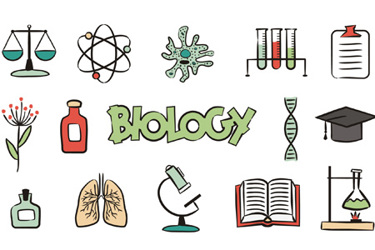Nurturing Next-Gen Biopharma Manufacturing Skills

By Matthew Pillar, Editor, Bioprocess Online

Last week I wrote about some of the projects underway at NIIMBL, as shared by Institute Director Kelvin Lee, Ph.D. during a keynote at BioProcess International in Boston a few weeks back. That column highlighted the concrete value of public/private partnerships in advancing manufacturing technology in biologics in real terms. It illustrated specific projects funded and supported by the consortium of biopharmaceutical companies, vendors and suppliers, colleges and universities, non-profit organizations, and federal, state, and local government agencies. NIIMBL really isn’t just a well-funded thinktank. It’s projects result in physical, tangible advances in biopharma manufacturing.
Equally demonstrable is the Institute’s commitment to nurturing the skilled workforce the industry needs now and will need even more as it moves into the development and production of increasingly complex ATMPs and multi-modal therapeutics. That’s on full display via the NIIMBL eXperience Program, launched three years ago and which Dr. Lee describes foremost as an initiative focused on improving diversity in the biopharmaceutical manufacturing community.

Why is that important work? Because biopharmaceutical manufacturing careers don’t get the exposure among college students that other jobs in the life sciences do. “When we started surveying students who were majoring in biology, we learned that often they chose that major to get into healthcare. They wanted to be a physician, a nurse, or a veterinarian, for instance,” says Dr. Lee. “They hadn't thought about what it would be like to work in development, manufacturing, or R&D at a drug company.”
Tapping Into Academic Biology’s Brightest
To inspire that interest, NIIMBL decided to take the talent to the proving grounds of biopharma, where they could gain exposure to several facets of the biologic manufacturing continuum. “We created a one-to-two-week program that amounts to an intense experience where students are taken to a large biopharmaceutical company and paired with mentors for the ‘big bio’ experience. They’re taken to small biopharma companies to get a feel for working in a fast-paced entrepreneurial environment. And they’re taken into government labs to experience what it’s like to work as a government scientist,” he says. NIIMBL selects what Dr. Lee characterizes as the “best and the brightest” to participate in the immersive experience.
The program has blossomed well beyond filling that exposure and mentorship gap. Some NIIMBL partners, including Pfizer, Merck & Co., Inc., Genentech, Millipore Sigma, and Eli Lilly have brought NIIMBL eXperience participants on board for internships, some of which are available exclusively to NIIMBL eXperience graduates. A number of those partners have gone on to hire internship participants on to full-time positions.
Past and ongoing supporters of the program include AstraZeneca, Cytiva, GSK, Philadelphia University + Thomas Jefferson University, Merck, MilliporeSigma, Montgomery County Community College, Pfizer, NIST, and the National Society of Black Engineers.
The NIIMBL eXperience program started small, but Dr. Lee says its success has inspired expansion to multiple regional efforts across the U.S. “We're trying to think about what we can contribute to advancing the diversity and inclusion that we all aspire to have in this industry, and this is one of a number of programs we’ve developed to do it.”
Those other workforce development programs include:
- The Nimble bioLOGIC Program, a project-based learning experience for high school students that focuses on engagement with advanced technologies, familiarization with the principals of entrepreneurship, and exposure to the education and career pathways that lead into the advanced manufacturing sector.
- A NIIMBL Virtual Career Fair that last year attracted more than 600 candidates from 122 academic institutions, vying for attention from 35 participating companies
- A new NIIMBL Faculty Fellows Program, offering financial support for faculty or instructional staff at universities and community colleges to pursue a sabbatical either at a NIIMBL industry member company or at NIIMBL’s Headquarters to support NIIMBL-led projects.
- A multitude (as in, hundreds) of short-course (1-4 week) training and certification programs for ongoing education in core biologic and ATMP manufacturing technologies and principles (e.g. the world’s first hands-on course in cGMP vector manufacturing) in partnership with MIT, The University of Georgia, Northeastern, the Tech Graduate Institute, and others.
The imbalance between the high demand for skilled biopharma manufacturing talent and the low supply of candidates prepared to fill those roles is tough to estimate accurately, but it’s unanimous that it’s wide and growing. What’s even less measured, but equally troubling, is the lack of formal on-the-job training for those veterans of traditional biologics—think antibodies and vaccines—who must pivot into cell and gene therapies, RNA-based vaccines and therapeutics, and any manner of other new modalities that we haven’t seen before.
Through its Workforce Development initiatives, funded by federal and private sources working on lockstep, NIIMBL is working tirelessly to fill those gaps.
